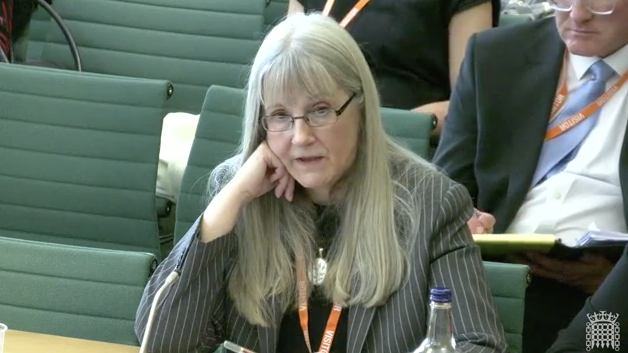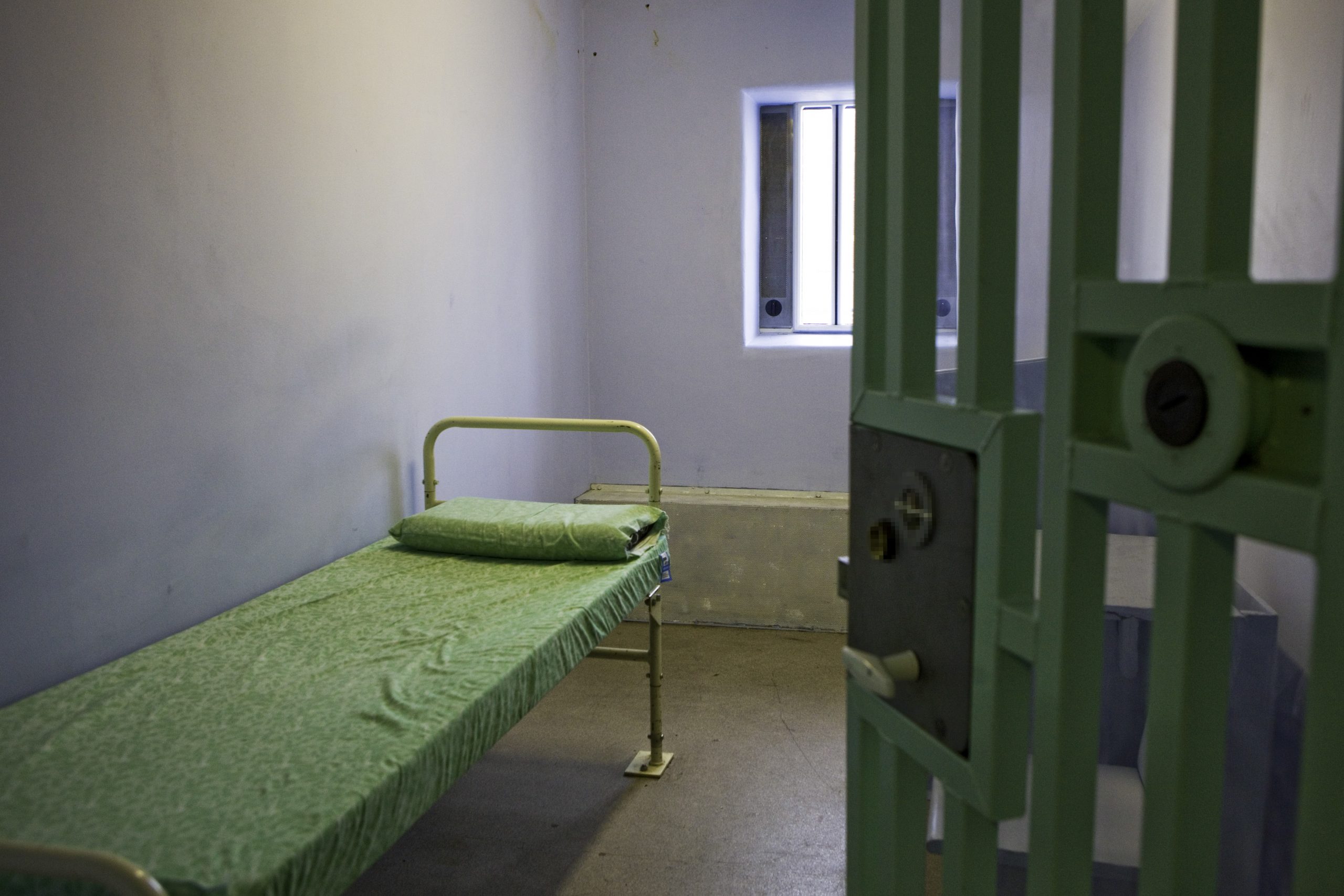Following a trainwreck meeting with the Criminal Cases Review Commission’s leadership team last month, the House of Commons’ justice committee has called upon the watchdog’s chief exec to go. The committee’s chair Andy Slaughter MP talks to the Justice Gap about how the CCRC has been ‘hollowed out’ and what needs to happen next.
At times during last month’s evidence session with CCRC chief executive Karen Kneller and head of casework Amanda Pearce, Andy Slaughter seemed genuinely shocked at what he discovered about the failing watchdog. ‘Who is actually running the organisation?’ he asked at one point.
A report from the committee following the session paints a vivid picture of an organisation that has lost its way. So what shocked him the most? The MP for Hammersmith and Chiswick begins by explaining that original motivation for calling in the CCRC’s senior management in was to ‘help the process’ and inform the interim chair of what issues might need to be addressed once that person takes off. A sense of organisational drift not helped by the fact that the commission has not had a chair since Helen Pitcher stood down in January and that the Ministry of Justice has yet to name a chair. When Pitcher did finally go (after having resisted calls from the Lord Chancellor), she insisted that had been made ‘a scapegoat’ of – and dumped on Kneller and Pearce by revealing that commissioners had previously called on her to remove ‘the senior management team’.
‘We went in expecting to find problems,’ Andy Slaughter tells the Justice Gap. But he adds: ‘We then were pretty shocked by the way that the witnesses dealt with these issues and felt that they showed a lack of understanding about the scale of the problem.’ In particular, the committee was struck by the insistence from the CCRC that any criticisms raised by Chris Henley KC in his report into the Malkinson case were limited to that one case.
 Slaughter points out that the committee was surprised again when, after the session, they received correspondence from Henley and Chris Webb, a communications consultant who had been hired by Karen Kneller to deal with the fallout from Malkinson. Both took issue with the account she gave to the MPs. ‘Karen Kneller misled Parliament,’ Chris Henley told the Sunday Times. ‘Her answers to the select committee were thoroughly inaccurate.’
Slaughter points out that the committee was surprised again when, after the session, they received correspondence from Henley and Chris Webb, a communications consultant who had been hired by Karen Kneller to deal with the fallout from Malkinson. Both took issue with the account she gave to the MPs. ‘Karen Kneller misled Parliament,’ Chris Henley told the Sunday Times. ‘Her answers to the select committee were thoroughly inaccurate.’
‘This has only served to reinforce the sense that the leadership of the CCRC has continually failed to learn from its mistakes,’ says the MPs’ report. ‘As a result of our concerns regarding the performance of the CCRC and the unpersuasive evidence Karen Kneller provided to the Committee, we no longer feel that it is tenable for her to continue as chief executive of the CCRC.’
MPs quizzed Kneller about attending courses at the INSEAD business school near Paris where Pitcher had held ‘multiple roles’ (as the MPs put it) including as president of its directors’ network board. Kneller was not able to confirm how much public money was spent on the courses – but told MPs that over the course of her time as chief exec around £50,000 had been spent on her development. This, it was also revealed, was the first training she had undertaken since becoming chief executive in 2013 and Pitcher had been the first chair to offer her such training.
What’s the concern here, conflict of interest or an abuse of public funds? According to Slaughter, it ‘just seemed a curious way to run an organisation’ and ‘it didn’t keep the proper boundaries that you have at the senior level of an organisation like this’. ‘Effectively decisions could be made to spend quite large sums of public money because they thought it was a good idea,’ he replies.
The Justice Committee report contains a response from Karen Kneller rebutting criticisms that the CCRC was trying to dampen down criticisms made by Henley. ‘We were understandably concerned that Mr Henley’s comments, intentionally or otherwise, might be taken to refer to all the casework of the CCRC, rather than that carried out in Mr Malkinson’s case,’ she wrote. ‘Mr Henley had full access to all our work on Mr Malkinson’s applications only, not to material relating to work on the more than 30,000 other applications made to us or more than 800 references to the appellate courts, resulting in the correction of more than 500 miscarriages of justice.’
The hole at the heart of the CCRC
‘We were still receiving information and processing it a couple of days ago,’ Slaughter says. But despite all this ‘frenetic activity’, he explains that ‘some of the more shocking things were the more prosaic details’. In particularly, he was struck by the acknowledgement from Kneller that it’s two most senior members of staff come into the office ‘maybe one or two days every couple of months‘.
The watchdog introduced its now notorious remote-first policy during the pandemic but have kept it in place ever since on the basis that they can not find sufficient willing candidates to come to Birmingham to fill its case review manager posts. ‘The package we were offering was not good enough,’ Kneller told the MPs.
This prompted a scathing response from the justice committee chair in the session: ‘I can’t believe you’re the only organisation in the country that hasn’t come out of Covid yet.’ He concluded the session by arguing that there was ‘a hole at the heart’ of the organisation. ‘If I went into your head office, I wouldn’t find any senior management there. I wouldn’t find any caseworkers there.… If I was your chief executive, I would be in every day. I would be asking my staff to be there. I’ll be trying to rebuild the organisation.’
The committee has been approached by ‘one or two casework managers’ in confidence who said that they did not feel properly supported. ‘They did feel that they had absentee management above them,’ the MP says. ‘That’s very troubling when you’ve got people who are dealing with fundamental issues of liberty, making sure that their decisions are right and where they need to be able to have access to whole areas of expertise but also senior seniority. We didn’t think that was the case.’
Dysfunctional
However, he argues that this wasn’t just ‘management’ failure; but there were even more fundamental issues at the commissioner level. The CCRC is required by statute to have 11 commissioners – it presently has just nine. This is critical for two reasons. For an application to be successful, it needs to be backed by three commissioners. Secondly – and most importantly – the CCRC was an organisation set up as a result of the Birmingham Six and a generation of miscarriages of justice involving the most shocking police corruption covered up by the courts and the justice system for years. The independence of the CCRC from government from the court was absolutely essential and the idea was that independence was embodied in the role of the commissioners – impressive, independent-minded people who could stand up to the police, the courts and the Ministry of Justice if necessary.
As has been argued on the Justice Gap, that has been fatally compromised.
‘When we dug down into what happened with the commissioners and the governance of the organisation – they were not just short on commissioners but those commissioners were working on a very part-time basis,’ says Slaughter. The Justice Committee report refers to the judicial review case brought in 2018 by Gary Warner who challenged the rejection of his case on the basis that the CCRC was not sufficiently independence of the MoJ – as reported here. He was not successful, but in a judgment published in 2020, Lord Justice Fulford and Mrs Justice Whipple concluded that, between 2016 and 2019 the relationship between the CCRC and the ministry had become ‘very poor […], even dysfunctional [which] undoubtedly tested the CCRC’s ability to remain independent of MoJ, and to be seen to be so’.
It was as a result of this period of dysfunction that the terms of tenure of the commissioners was foisted upon the watchdog despite resistance from the commissioners. This resulted in commissioners moving from near full-time salary positions of close to £94,000 a year to commissioners working or on one-day-a week contracts as they do now. A recruitment campaign which closed last April stated that appointments were made for a fixed term of three years for 52 days per annum at £460 per day.
I put it to Andy Slaughter that this changing of arrangements had fundamentally changed the nature of the organisation – and that that had happened without parliamentary oversight. ‘It’s a huge concern,’ he replies. ‘The role of commissioners has been diminished in every possible way. It is astonishing, in 2023/24 term commissioners were on average the full-time equivalent to 2.26 – that gives you an idea of just how part-time the commissioners are. They are basically being employed on piecework done on day rates.’
Under the CCRC’s founding statute, the commission was created as a body corporate with the commissioners as its members. That has also been changed. As Andy Slaughter notes: ’It was very clear that the day-to-day operational side of the commission have been delegated to the board that only includes two to three commissioners and they were outweighed by senior managers and ex officios. They have been sidelined in terms of running the organisation and they’ve been sidelined in terms of their referral function. There weren’t enough of them to do that.’
According to Slaughter, there are not enough commissioners, they ‘don’t act collectively’ and they are not ‘front-and-centre within’ the governance and operation of the organisation.
The MPs talk of the CCRC having been ‘hollowed out’. ‘There’s nobody there – and that’s both in that there’s no leadership from the top and the different parts of the organisation which should function, and I think, did function years ago. That has all been lost. And that’s why it leaves the organisation a pretty parlous state.’
It’s a grim verdict.
But Slaughter believes that the government has the bit between the teeth. He points out that the Lord Chancellor was ‘instrumental’ in ensuring that Helen Pitcher was ‘moved on’ despite it being ‘a protracted and difficult process’. He notes the irony that that difficulty arose from the very fact that the CCRC is supposed to be a politically independent body ‘and not basically at the whim of politicians to get rid of the chair when they want’. ‘What we want is for them [the MoJ] to appreciate how low the organisation has sunk and to revive it – and the first indication of that will be who they put and who they put into the chair in the on a interim basis and what the terms of the review will be.’
Support the Justice Gap, buy PROOF







